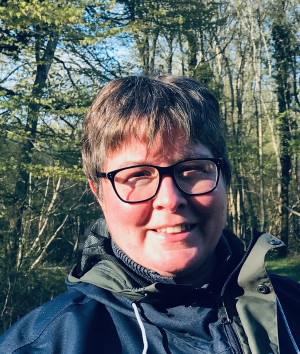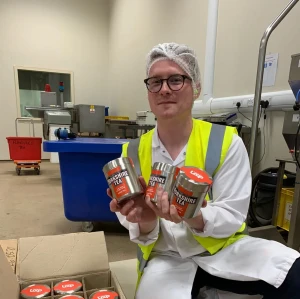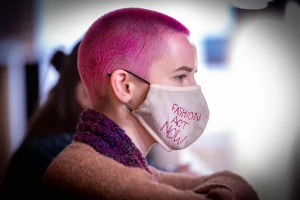This thought piece is part of a series sharing key insights from Constellating Change, our 2023/24 learning and practice series that shone a light on the dynamics and patterns of organising for systems change. It is written by Louise Armstrong, a collaborative network partner at the School of System Change.
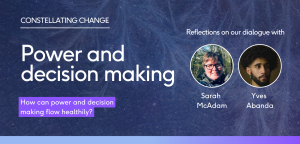
You can’t think about ‘organising for change’ without delving into the realms of power and decision-making. There are so many misconceptions and negative associations with each of these things - so our focus for this session was about how power and decision-making can flow healthily.
Contributors Sarah McAdam and Yves Abanda joined for this session. They are two collaborators who had worked together for some time and traversed some of the dynamics that emerge when working with these topics. They had experienced that their relationship and understanding of this topic had depth that could hold and flex with the difference between them. As a consequence, they spoke confidently about a topic that can often be taboo, or very charged.
Meet Our Contributors
Power as Inevitable and Visceral
During the session we spoke about the inevitability of power...
“What doesn't work is pretending we all have the same say or power.” - Series participant
...and the many ‘visceral reactions’ that come up when engaging with it. The assumptions that power is negative, bad, difficult and something not everyone has - being challenged. While recognising that part of the complexity is that power operates at so many different scales and we have many different experiences of it.
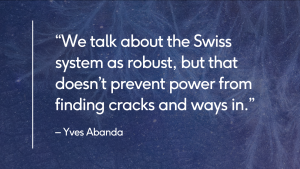
Needing to Be More Explicit About Power and Decision-Making
We explored the potential that comes when being explicit and more visible about this topic. And how often there is an intimate interplay between power and decision making. We recognised that not making a decision is still an act of less visible, or less explicit, power.
What is often telling is what happens in a room when a high-stakes decision is being made. Who can propose a decision?
“I think that is the litmus test in a group: can you voice dissent and is it welcomed?” - Series participant
Can people object and share different views, or not? There are ways to get creative about how we understand these things. Yves spoke about “mapping the gaze streams” in the room - where people are looking, who they are following, the unseen and unspoken dynamics in a group.
Power Is Personal: Shifted Relationship to Power
We often think of power as ‘out there’ - but it is also within us.
“I appreciated putting that question onto us, not how have you experienced others holding power in a healthy or unhealthy way, but how have I experienced it myself.” - Series participant
Yves spoke about how too often we’ve imported the process of consent-based, or other types of decision-making processes - but without having worked through the shift in posture and inner shifts needed to go alongside. Instead, we can embrace bringing awareness to our personal positionality as a prerequisite. As well as what it means to be in a different relationship to power.
As an example, Sarah spoke about what healthy power is:
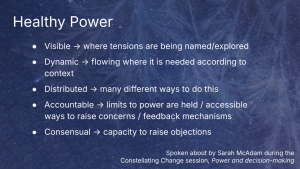
Learning and Practice Invitations
For such a big topic, here are some routes in:
- Reflecting on your experience so far, consider:
- When have I experienced holding power in a healthy way?
- When have I experienced holding power in an unhealthy way?
- Moving forward in your practice, consider:
- How you can talk about power with positive connotations (and debunk the negative myths in the process)
- How you can voice and welcome dissent
- How you can create more spaces for people to grow their ability to say no, object or dissent
Deeper Dive Resources
Recommended by contributor Sarah McAdam:
- Webpage: Transformational Governance Slack Community, ‘Information about the Transformational Governance Slack community’ (date unknown). Published on Notion. This is an online space where people practising and interested in transformational governance can connect, share information and offer peer support.
- Website: ‘Healthy Human Culture’.
- Resource hub: Sociocracy for All, ‘Resources introducing the principles and practices of sociocracy’ (date unknown). Published by Sociocracy for All.
Recommended by contributor Yves Abanda, videos from Université du Nous:
- Our relationship to power (you can apply English CCs if you don’t speak French!)
- The Karman Triangle (an analytical tool to understand some power games)
- Pitfalls, limits, and debunks of shared governance (pitfalls around attempting to share power)
More resources:
- Blog: Sean Andrew, Louise Armstrong and Anna Birney, ‘The governance flywheel’ (2022). Published on the Constellating Change Medium.
- Blog: Anna Birney, ‘Power Dynamics: A Systemic Inquiry’ (2021). Published on the School of System Change Medium.

Written by Louise Armstrong
If you're interested in bringing this learning into your organisation or network, get in touch with Sean, our Learning and Practice Partner Lead. To keep inquiring with us as we explore more themes, subscribe to the School newsletter for systems change insights, inspiration and resources.



